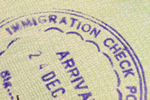House of Representatives targets Russia?s human rights offenders

House of Representatives targets Russia?s human rights offenders
Shortly afterwardsm the same senators approved new legislation allowing sanctions against all human rights abusers, thus kicking the ball straight back into Russia’s court. One set of human rights abusers the new law is directed towards are those who sent Sergei Magnitsky, a corruption-fighting lawyer, to his 2009 death in a Russian jail.
Jackson-Vanik, a cornerstone of the Cold War fight against Russia’s disallowing of its Jews from emigrating to Israel, proved a useful tool at the time. Russia now allows Jewish emigration, and Friday’s legislation will allow normal trade relations with the country as a permanent fixture, helping US companies do more business with the former enemy.
However, concerns that Russian respect for human rights has hit an all-time low since Vladimir Putin’s reelection as President suggest that Mr Jackson’s original goals are still well short of fulfillment. During the last year, a raft of anti-freedom of expression laws along with expanded state powers over treason, a reduction of NGOs and a crack-down on demonstrations all suggest Russia is going backwards rather than forwards.
Challenging the Kremlin is again forbidden, demonstrated by harsh prison sentences handed down to the Pussy Riot punk rock band for daring to criticise Putin during a prank performance in a church. Another recent example set to increase fear and intimidation is that of a supposed opposition activist abducted from Kiev by Russian agents and dragged back to Moscow for interrogation.
The new US legislation, named after Mr Magnitsky, allows visa denial and freezing of assets of those involved in crimes against human rights, and is intended to name and shame the Magnitsky case offenders. Russia took the point straight away, immediately vowing tough repercussions against what it believes is unfriendly, provocative legislation.
Related Stories:
- Brit expats in EU warned their rights are still at risk - May 15, 2020
- Brit expats urged to support lawyers working for continued EU rights - April 17, 2020
- Expat house hunters in Italy could well bag bargains after the pandemic ends - April 14, 2020
- Expats in Thailand fear for their rights during state of emergency - March 26, 2020
- Netherlands post-Brexit expat residency rights denied by mistake - January 13, 2020
- House hunting expats with DIY experience could bag a treasure in Italy - January 3, 2020
- British in Italy expat campaign group clarifies Britons� 2020 rights - December 18, 2019
- Pros and cons of expat house purchase in Italy - October 16, 2019
- Post Brexit rights for Czech expats in UK and Brit expats in the republic - September 25, 2019
- House-hunting as a newly-arrived expat in Indonesia - September 12, 2019
Latest News:
- Tips on a trouble-free relocation as an expat overseas - July 20, 2020
- Expats find peace in the covid-19 refuge of Dahab town - July 20, 2020
- Is Kuwaitization the unintended result of the oil price crash? - July 20, 2020
- Expats unhappy abut changes to Korean points-based visa system - July 17, 2020
- Chiang Mai and Bangkok no longer bargain locations for expats - July 17, 2020
- Expats in Malaysia still banned from overseas travel - July 17, 2020
- Vietnam welcomes expats to its safe, affordable lifestyle - July 16, 2020
- Asian tiger economies reach out to expats in Hong Kong - July 16, 2020
- HSBC Asia to cut back on internal expat relocations - July 16, 2020
- Tips on integrating for newly-arrived expats - July 15, 2020


